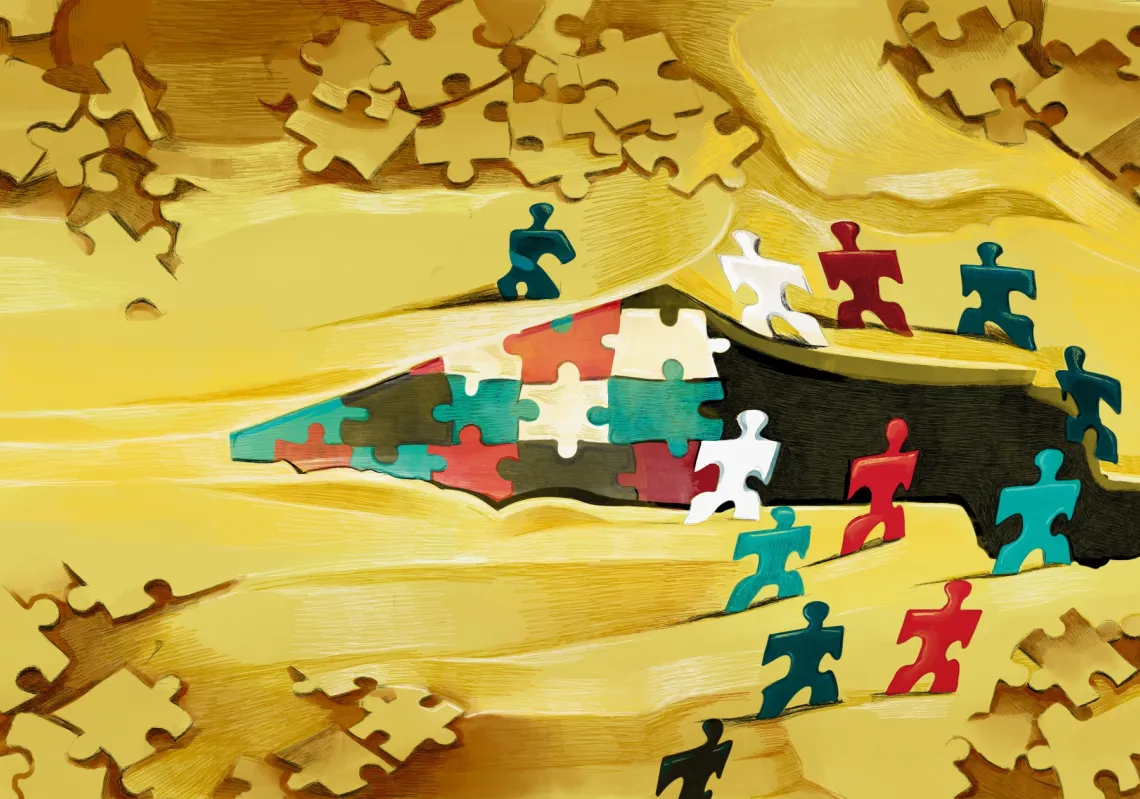The participation of the Palestinian national football team in the prestigious Asian Cup was an achievement in more ways than one.
As well as showing that the team could defy its lowly ranking – it is in 97th place in FIFA’s global standings – its players got the chance to represent Palestine during its time of struggle.
Affectionately known as Al-Fedayeen, the team reminded the world of a people’s ambitions for statehood – and revealed the wider extent of demands for peace in Gaza.
Sport can be a powerful means of expression. It can highlight the spirit and passion of any country, especially in football’s globally watched international competitions.
The Palestinian team’s display did that in Doha. This sentiment was much remarked upon around the world in coverage of the games and post-match analysis.
The poignant feeling toward Palestine and its players was clear from early in the tournament and throughout. At key moments, it seemed to transcend sport.
Major gesture
During the opening ceremony at Lusail Stadium, the captain of Qatar's national team, Hassan Al-Haydos, extended a special honour to his Palestinian counterpart. Musab Al-Battat recited the players' oath — a role traditionally held by the host nation.
Qatar national team's captain Hassan Al Haydos passes the honor of taking the tournament oath to the Palestinian national team captain Musab Al-Battat#Qatar2023 #HayyaAsia #AsianCup2023 pic.twitter.com/fpiojoyXCV
— The Peninsula Qatar (@PeninsulaQatar) January 12, 2024
The gesture echoed the previous year's World Cup in Qatar, where the visibility of the Palestinian cause was heightened as fans and some players openly displayed support through banners and slogans. The Moroccan team even celebrated their victories with a Palestinian flag.
It caught the attention of the Western media, which was at times critical of an apparent leniency over displays of support for Palestine, in contrast with FIFA’s otherwise strict policy preventing political messaging. The game’s governing body refused to allow European teams to wear armbands supporting LGBTQ+ minorities.
The Asian Cup takes place somewhat outside the media spotlight of the West and features a strong Arab fanbase, as well as a host nation supportive of the Palestinians.
This combination allows for more open support of the Palestinians and their cause. And it was on display during the opening ceremony.













